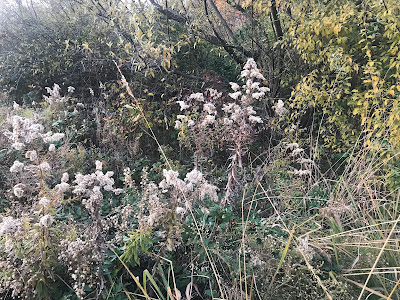I was already writing another post this morning when I learned from “The Writer’s Almanac” that today is the birthday of Aldo Leopold. I had never heard of Leopold until I took the class last fall. Now I can’t imagine not knowing about him. Here’s an excerpt from a review I wrote of his book A Sand County Almanac:
At first glance Aldo Leopold’s book A Sand County Almanac (1949) seemed to be like other evocative writing about place — books by Annie Dillard or Henry David Thoreau, for example, books that shed light not only on cities or rivers but also on the author or the human condition, books in which the landscape is a vehicle to the self. I was to learn otherwise.
I scanned the bio of Leopold on the back of the book before I started reading it, and I learned that he grew up in Iowa, graduated from Yale Forestry School and worked with the U.S. Forestry Service in New Mexico and Arizona before becoming a professor of game management (a field he is credited with creating) at the University of Wisconsin. Leopold bought some poor, down-on-its-heels farmland near Baraboo in south-central Wisconsin, rehabbed an old chicken coop on the property and lived there with his family on weekends and vacations. It was there that he wrote the essays that became his masterpiece, A Sand County Almanac, a book that encapsulates the philosophy of place that makes him one of our earliest prophets of ecology and wilderness preservation. This book, like the twisted little apples of Winesburg, Ohio, is the hard-won fruit of the deep thinking Leopold brought to the land on which he chose to live.
Sand County was not as conversational or as revelatory as I first thought it would be. It was not a book about the transformation Leopold and his family underwent as they lived in the “shack” and fixed up the farm. It was so much more.
“There are those who can live without wild things, and some who cannot. These essays are the delights and dilemmas of one who cannot,” writes Leopold in his introduction. But from such big pronouncements the work quickly becomes more specific: the winter awakening of a skunk, the trail of a meadow mouse, the fate of the passenger pigeon, the life of a downed tree, the difference between a shovel (which makes us givers) and the axe (which makes us takers).
Eventually, Leopold does share a few personal details: “To conclude, I have congenital hunting fever and three sons. … I hope to leave them good health, an education and possibly even a competence. But what are they going to do with these things if there be no more deer in the hills, and no more quail in the coverts? … And when the dawn-wind stirs through the ancient cottonwoods, and the gray light steals down from the hills over the old river sliding softly past its wide brown sandbars – what if there be no more goose music?”
So there is a place for the personal in Leopold’s ruminations after all, a subtle place and an effective one. But the most important lesson I learned from reading this book is to let go. Let the place teach me.



